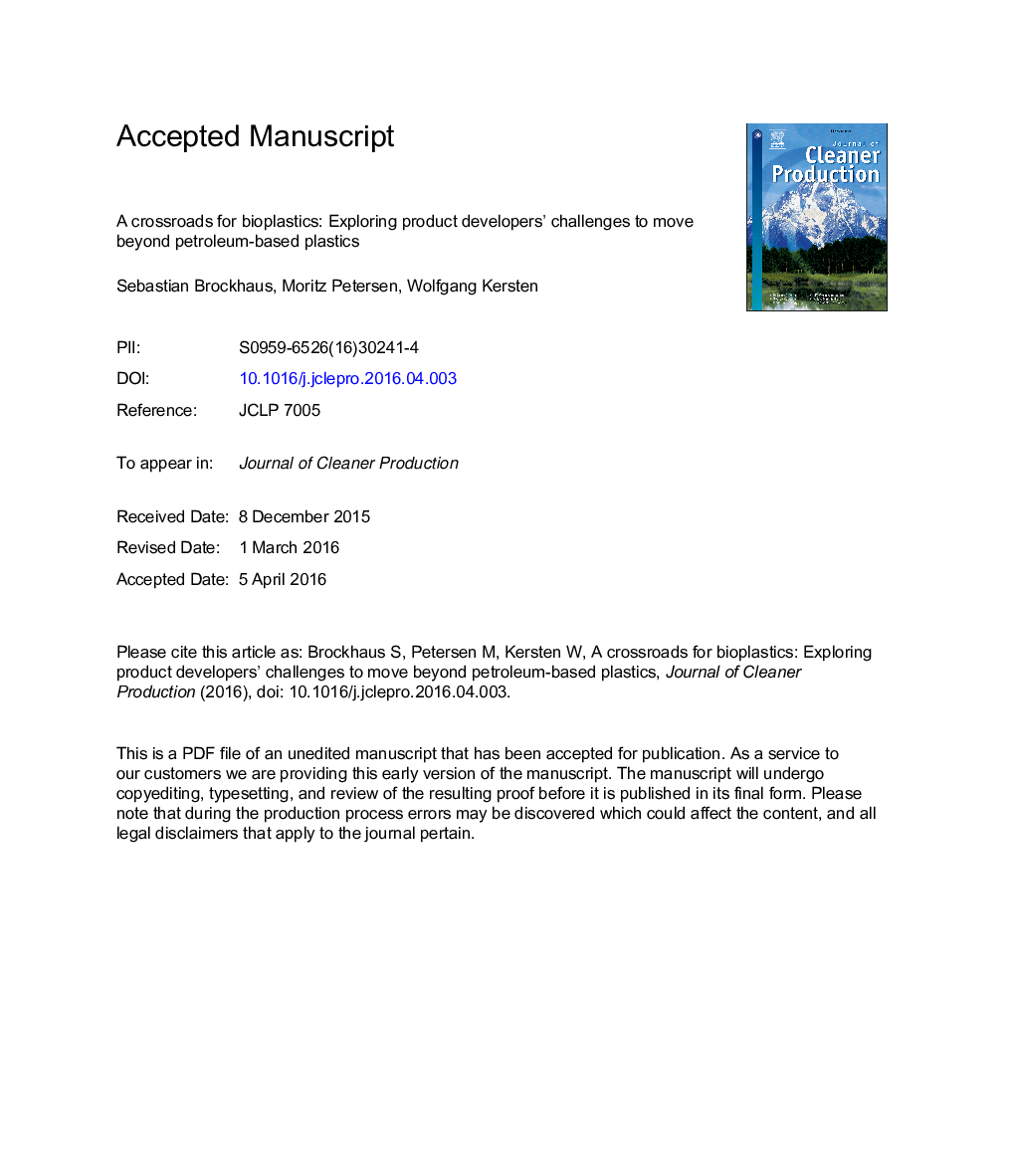| Article ID | Journal | Published Year | Pages | File Type |
|---|---|---|---|---|
| 1744068 | Journal of Cleaner Production | 2016 | 32 Pages |
Abstract
Bioplastics play an increasingly important role for consumer products. These new materials might increase product sustainability but they are currently confined to niche markets. While research has gained important insight into the technical challenges, few studies to date explore the behavioral aspects for product developers as they move to employ bioplastics in their development efforts. This manuscript reports the findings of a grounded inductive study based on interview data with 32 product developers in the consumer goods industry. The Theory of Planned Behavior is employed to guide the research and provide a theoretical background to derive implications. The study finds that behavioral challenges impede the increased use of bioplastics. Product developers experience a lack of perceived behavioral control and struggle with doubts about the environmental benefits and incurring trade-offs of bioplastics with respect to the Triple Bottom Line. While product developers are intrinsically motivated to make more use of bioplastics, they often refrain from bringing products to the mass market due to uncertainties of customer receptiveness and fears of greenwashing allegations. Implications for industry and research are detailed.
Keywords
Related Topics
Physical Sciences and Engineering
Energy
Renewable Energy, Sustainability and the Environment
Authors
Sebastian Brockhaus, Moritz Petersen, Wolfgang Kersten,
